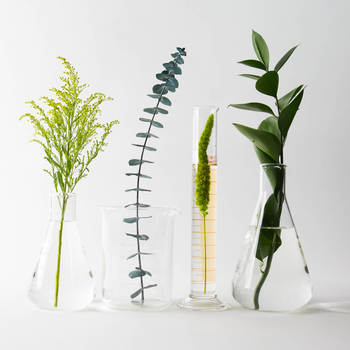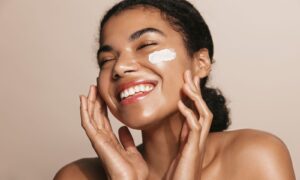As much as we love purchasing skincare products, it’s difficult to decipher which products are good for us and which aren’t. Unless you are a skincare or ingredient professional, then you most likely won’t know what AHA or BHA is. Yes — google exists and you can easily google what any ingredient is, but even then, google definitions can be difficult to comprehend (or.. maybe it’s just us).
We care about you and we want you to always have glowing skin! So, we put together a list of the most common skincare ingredients and how they may benefit your skin.
1. Alpha-Hydroxy Acid (AHA)
Alpha hydroxy acids are a group of natural and synthetic ingredients that, when properly formulated, can exfoliate the uppermost layers of skin. AHA in products can help with fine lines and wrinkles, pigmentation/age spots, and may help to shrink enlarged pores. The most common AHAs are lactic and glycolic acid. Please be aware that sensitivity and mild irritation can occur when using this. We recommend to apply sunscreen (always!) and try to avoid being in the sun.
2. Beta-Hydroxy Acid (Salicylic Acid)
Beta hydroxy acid or more commonly known as salicylic acid removes dead skin and can improve the texture and color of sun-damaged skin. BHA penetrates oil-laden hair follicles, which helps to clear acne and blackheads. It is known to be less irritating than AHA, but that doesn’t mean you should skip the SPF!
3. Kojic Acid
Kojic acid works to lighten visible sun damage, age spots, or scars, which can result in an anti-aging effect on the skin. Kojic acid is produced by several species of fungi. It works by blocking tyrosine from forming, which then prevents melanin production. Decreased melanin production can have a lightening effect on the skin.
4. Retinoids
Retinoids are a class of vitamin A derivatives that have been used in skin care for a very long time now. For the most part, retinoids might be a foreign word to the majority of us that aren’t skincare professionals, but I’m sure you might have heard of retin-A. Retin-A is one of the more known products from retinoids. It is used to improve acne and acne scarring, pigmentation, fine lines and wrinkles, skin texture, skin tone and color, and your skin’s hydration levels. It’s literally an all in one!
5. Hydroqinone
Hydroquinone – a very known and controversial product. Hydroquinone is often called bleaching creams or lightening agents. It used to lighten pigmentation, melasma, age spots and dark spots. We absolutely do not recommend for anyone to use Hydroquinone. It is not safe and can be harmful to one’s skin and health. There are natural alternatives out on the market, like Gigawhite, that is extremely effective in lightening dark spots and pigmentation. Always opt for the natural version when it comes to Hydroquinone!
6. L-ascorbic Acid (Vitamin C)
Not all Vitamin C products are created equal. You could find so many products that contain Vitamin C derivatives, but are they going to work? Try to only purchase products that contain the ingredient L-ascorbic acid. This one is going to be most effective in your skincare.
Naturally with age and sun exposure, you lose collagen production, which will lead to wrinkles and fine lines. While you can’t stop the aging process, you can slow it down a bit. Continuously using products that contain Vitamin C will help to stimulate the synthesis of collagen, minimizing fine lines, scars, and wrinkles.
7. Hyaluronic Acid
The key to the fountain of youth. Hyaluronic acid is a sugar found naturally in our skin that holds water and helps keep it hydrated and plump, but the naturally-occurring hyaluronic acid in our bodies decreases as we get older. Diet and smoking can also affect the hyaluronic acid in our bodies. So, the next best thing is using products that contain this ingredient. It will help with skin hydration and firmness.



